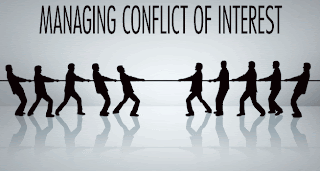I gotta kick-outta this one...let's cut to the Chase...
In May, the Federal Reserve and other regulators proposed steps to end what they called "unfair and deceptive" practices in the credit card industry. The rules aim to protect people from having their interest rates raised arbitrarily. (among other practices)
However, today came this (From JPMorgan Chase):
"The Federal Reserve's proposed rules for credit card lenders could lead to the banking industry to lose at least $10.6 billion in interest annually, JPMorgan Chase & Co. said in a letter to regulators, citing a study."
The bank said those industry losses would likely result in a nearly 12 percent increase in annual percentage rates to an average of 16.58 percent! They also said it would result in a $1.1 trillion reduction in total credit lines to consumers; and tighter standards that would stop $11 billion in new accounts from being booked each year.
In May, the Federal Reserve and other regulators proposed steps to end what they called "unfair and deceptive" practices in the credit card industry. The rules aim to protect people from having their interest rates raised arbitrarily. (among other practices)
However, today came this (From JPMorgan Chase):
"The Federal Reserve's proposed rules for credit card lenders could lead to the banking industry to lose at least $10.6 billion in interest annually, JPMorgan Chase & Co. said in a letter to regulators, citing a study."
The bank said those industry losses would likely result in a nearly 12 percent increase in annual percentage rates to an average of 16.58 percent! They also said it would result in a $1.1 trillion reduction in total credit lines to consumers; and tighter standards that would stop $11 billion in new accounts from being booked each year.
Editors Note: Wait...am I getting this right? Is J.P Morgan really saying "If the Federal Reserve (in order to prevent our "arbitrary" interest rate spike in cards) steps in and attempts to END our "unfair and deceptive" credit card practices, an interest rate increase will become mandatory. Are they really saying that they "cannot afford" to do business without deceptive and unfair behavior? Or are they saying, "we'll meet you halfway...we'll get rid of the deception part, but please let us keep "unfair" or we stand to lose $10.6 billion in interest fees.
Wait...there's more:
In a letter sent Monday to the Fed's board of governors, the "Office of Thrift Supervision" and National Credit Union Administration, JPMorgan's Chase Bank subsidiary said the proposed regulation, if finalized, "is likely to have profound effects on Chase's operations and financial results."
The cumulative impact for the participating banks is at least $10.6 billion in annualized interest lost, Chase said in its letter, signed by Associate General Counsel Andrew T. Semmelman.
On Monday, the chairman of the Senate's investigations subcommittee said he supports the Federal Reserve's proposed restrictions on credit card practices -- but that he believes there should be more. Sen. Carl Levin, D-Mich., wrote in a 13-page letter to the Fed that it should expand its rules to end or restrict such practices as charging interest for debt paid on time; interest on transaction fees; fees levied on consumers paying their bills on time; and billing amounts that force consumers to pay four or five times their original debt.
The cumulative impact for the participating banks is at least $10.6 billion in annualized interest lost, Chase said in its letter, signed by Associate General Counsel Andrew T. Semmelman.
On Monday, the chairman of the Senate's investigations subcommittee said he supports the Federal Reserve's proposed restrictions on credit card practices -- but that he believes there should be more. Sen. Carl Levin, D-Mich., wrote in a 13-page letter to the Fed that it should expand its rules to end or restrict such practices as charging interest for debt paid on time; interest on transaction fees; fees levied on consumers paying their bills on time; and billing amounts that force consumers to pay four or five times their original debt.
Back in March, JPMorgan Chase, at the behest of the U.S. government, bought the ailing investment bank Bear Stearns Cos. when it appeared to be near collapse.
Editors Note: Kind of gives new meaning to the term "conflict of interest" doesn't it? It'll be interesting, to say the least, to watch how this turns out.
Prediction..not good for consumers. Not good for the credit card companies.
Editors Note: Kind of gives new meaning to the term "conflict of interest" doesn't it? It'll be interesting, to say the least, to watch how this turns out.
Prediction..not good for consumers. Not good for the credit card companies.
Related: Chuck Jaffe writes for MarketWatch: Cost of Credit Card Reform? Pricey



